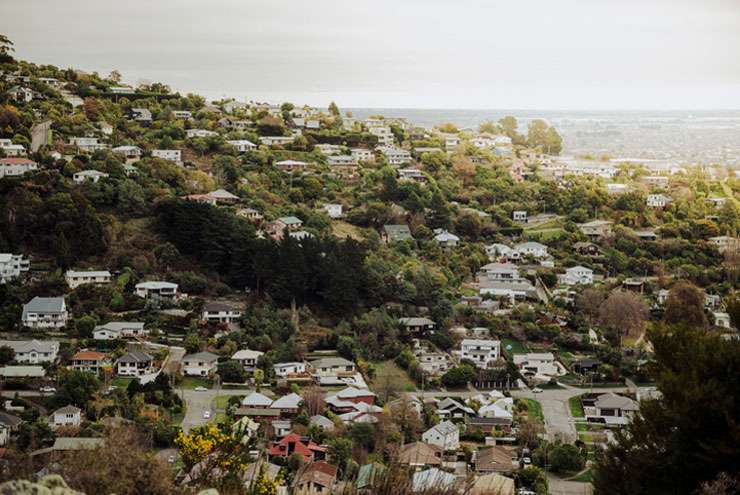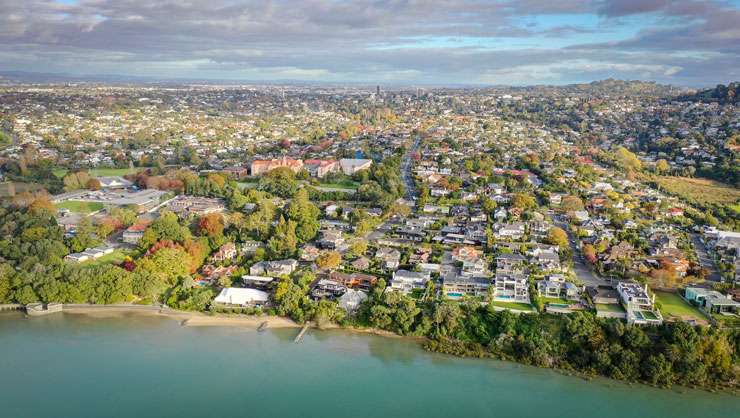New Zealand's property market is showing signs of fatigue in some regions, but overall, house price inflation is still running at a fair clip, according to the latest OneRoof-Valocity House Value Index figures.
The average property value for the country hit $1,036 million at the end of October, up 5.6% over the quarter, and 27.7% over the year.
Canterbury, driven by strong sales action in Ashburton, Selwyn and Christchurch, enjoyed the country's biggest rise over the quarter, with its average property value rising 9.2% to $726,000, while the rate of growth in both Greater Wellington and Manawatu-Whanganui shrank to 3.9%.
The weakest part of the country was Marlborough, where the average property value rose just 1.2% over the quarter to $756,000, although Gisborne was not far behind, with growth of just 2.3%.
Start your property search
Auckland, now in its third month of lockdown, on the other hand recorded a strong growth rate of 5.8% for the quarter, with its average property value now sitting at $1.471m - $81,000 more than at end of July.
Buyer demand in the city is strong and sales volumes are picking up after a slow and uneasy September, with more stock making its way to market.
The Bay of Plenty joined Auckland and Greater Wellington in the $1m club, with quarterly growth of 5% pushing the region's average property value up $48,000 to an even $1m.
Also fast approaching the milestone are Tasman (average property value of $954,000) and Waikato ($927,000).
With an average property value of $367,000, West Coast remains the cheapest part of the country for real estate, although buying activity has ticked up, with affordability a large factor in the region's value growth of 4.6% in the last three months.

The average property value in Christchurch rose 8.9% in the last three months. Photo / Getty Images
Of the major metros, Christchurch enjoyed the biggest quarterly rise in the average property value (up 8.9% to $731,000), which is not surprising given its strong run of auctions sales since moving to level 2.
The recent appearance of the Delta variant in the city, however, may dent forward momentum in the market.
A 6.6% rise over the quarter added another $72,000 to Tauranga's average property value, now $1.157m, and it's possible that continued heat in the market will push it ahead of Wellington, where the average property value rose only 3.5% ($42,000) to $1.241m.
Dunedin remains the weakest major metro, with the city's average property value rising just 3.4% over the quarter to $722,000.

The last three months added another $276,000 to Remuera’s average property value. Photo / Fiona Goodall
Within Auckland, the heat is evident in new-build mecca Papakura (up 8.6% for the quarter to $1.126m); Waiheke Island, where the average property value broke the $2m mark after a rise of 7.7%; and South Auckland, where developers' thirst for land drove up the average property value 6.7% to $1.098m.
The Auckland suburbs that have done best during lockdown are Sandspit (+11.2% to $2.094m); Glen Eden (+10.8% to $1.047m); Piha (+10.5% to $1.426m); and Papakura (+10.4% to $938,000).
Dollar-wise, home-owners in Remuera came up tops, with the last three months adding another $276,000 to average property value, now just over $30,000 shy of $3m. Another 56 suburbs in the city saw their average property value grow by more than $100,000.
Herne Bay, the country's most expensive residential suburb for real estate, continues its steep climb, with quarterly growth of 2.4% pushing its average property value to $3.883m. It's likely that the waterfront suburb will be hitting the $4m mark before Christmas
Seven Auckland suburbs, however, have buckled under the pressure of Covid restrictions and lost money: Grafton (-3.7% to $746,000); Manukau (-1.9% to $707,000); Avondale (-1.7% to $1.17m); Newmarket (-1.7% to $1.01m); South Head (-1.6% to $1.296m); Greenlane (-0.3% to $2.055m); and Takapuna (-0.2% to $2.353m).
There are more casualties outside of Auckland. Thirty-one suburbs suffered declines in their average property value over the last three months. Dollar-wise, Wellington's Oriental Bay lost the most, with its average property value dropping $117,000 to $2.61m, while Onewhero, in Waikato, suffered the biggest percentage fall (down 7.1% to $1.051m).
Encouragingly though, no suburb that recorded 20 or more sales over the last 12 months has fallen in value since October 2020.












